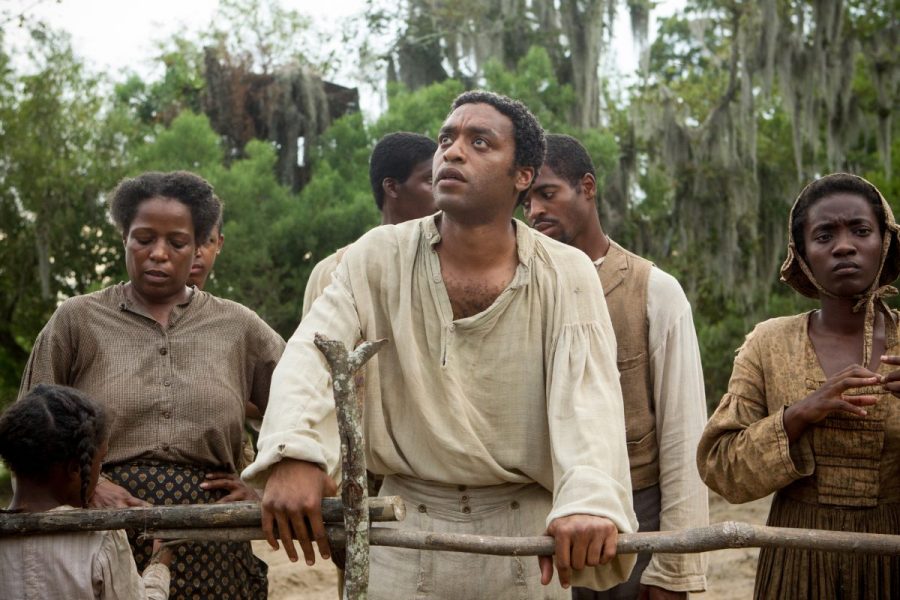Like last year’s Oscar favourites Lincoln and Django Unchained, Turner Prize winning director Steve McQueen’s third feature film also tackles the often swept-under-the-carpet subject of slavery. McQueen’s production however, based on the true account of Solomon Northup, is a far more uncompromising depiction of the despicable conditions Northup, and countless others like him, were subjected to.
Solomon Northup (Chiwetel Ejiofor) is a husband, a father, an African American and most importantly – a free man of significant social standing. However, when away working in Washington he’s kidnapped and wrongfully (even under the questionable laws of 1841) sold into slavery. He is renamed, traded, beaten, abused and betrayed, but throughout this painful and harrowing existence he never abandons the hope of seeing his family again.
During Northup’s journey to the slave markets, McQueen employs a highly unsettling soundscape of industrial metallic clanks, conjuring up images of the shackles that now bind Northup’s wrists. However these auditory images of imprisonment are mere spinal shivers when compared to McQueen’s visual depictions of unremitting cruelty. From Northup’s initial moments in chains and throughout the production, McQueen is unflinching in showing exactly how brutally these ill-fated humans were treated. One queasy scene in particular, when Lupita Nyong’o’s frail Patsey is tied to a whipping post, is so effective in showing the unwarranted ferocity it is physically sickening.
Ejiofor is utterly transfixing as the humiliated Northup, whether as a dishevelled wreck after falling victim to some lashings, fighting back the panic as he invents a lie to save his life or full of disgust and regret as he’s forced to torture the innocent Patsey. The emotional range required of him is almost as challenging as the story being told and he embodies them all with a striking poignancy. Equally absorbing is Michael Fassbender’s disturbing portrayal of the gruesome cotton plantation owner Edwin Epps, either fatuously filled with the misplaced righteousness of Christianity or leering his spittle-flecked contempt into the faces of his ‘property’.
Although much of the scenery could be seen as picturesque, the peaceful tranquillity of the Deep South’s bayous or the over-hanging arbours of emerald foliage, the gravity of the exploitation prevents it from being so. Some of the more disturbing scenes come not from the extreme violence, but from the commonplace and everyday nature of the hostility directed towards people whose only ‘fault’ was having darker skin. What McQueen adeptly portrays is the constant efforts to undermine and erode the captive people’s humanity and the demoralising abuse they were subjected to in order to justify the white person’s ‘superiority’. Paul Dano’s arrogant Tibeat’s, a carpenter who is shown up by Northup’s proficiency, is particularly interesting as it shows how anger and hatred can stem from jealousy and a sense of inadequacy – an attitude it could be assumed was a common source for much racism.
McQueen’s beautiful but ugly picture, is a sobering and embarrassing wake up call to the kinds of excessive maltreatment and incivility that helped build modern Western civilisation.
